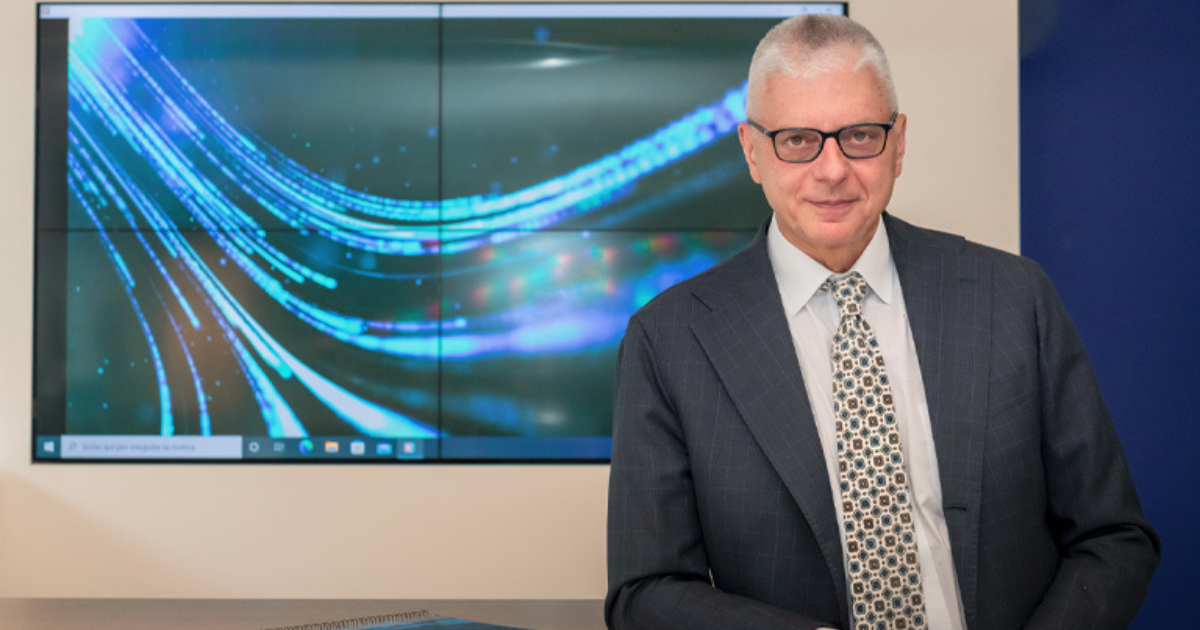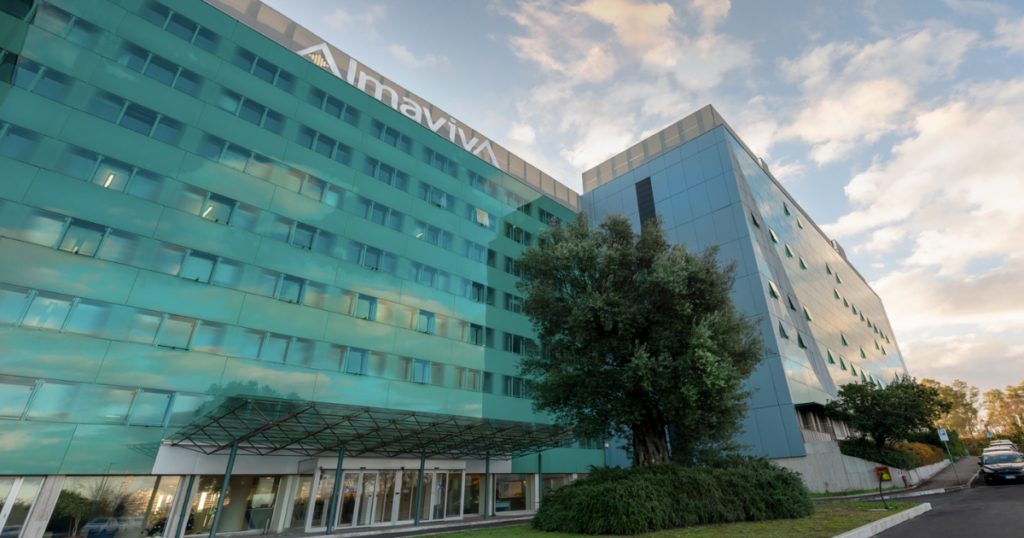
INTERVIEW WITH ANTONIO AMATI, IT General Director for AlmavivA
As an innovation partner of SFS24, which will take place on November 19th and 20th at Rome’s Olympic Stadium, AlmavivA is a key player in the technology and digital market. For the occasion, we conducted an interview with Antonio Amati, IT General Director, who has been actively involved in promoting the challenge for our Extra Time startup competition. Here’s what he had to say:
What are your expectations for Extra Time, for which you have been the main promoter of the challenge? Do you have any specific expectations? How should a pitch be structured to aspire to win the prize?
We are looking for ideas that bring concrete and sustainable innovation to the Football Industry, leveraging technology as a driving force for change. A winning pitch should showcase a clear and realistic vision, with solutions that can evolve through collaboration between startups and industry players, focusing on synergy and shared growth. We seek projects demonstrating a positive and lasting impact, viewing football as a testing ground for solutions that enhance the experience for fans and industry professionals alike. Ideally, the innovation should be applicable globally, addressing contemporary challenges with creativity and responsibility, not just limited to football.
How does AlmavivA engage with the digitalization processes that have impacted the football industry? Could you provide examples of specific cases for which you have developed custom IT systems?
AlmavivA is a provider of digital innovation across all business sectors and critical national assets. Similarly, we have a strong presence in the Football Industry. Primarily, we work on technological solutions to effectively combat piracy in the sports sector. Real-time monitoring systems are constantly updated to swiftly identify new threats. We utilize artificial intelligence and machine learning techniques to analyze internet traffic and detect suspicious patterns, which are essential for anticipating new techniques. Additionally, we implement automated takedown systems capable of swiftly removing illegal content and reacting quickly to attacks. Predictive analysis, based on studying trends and behavior patterns of piracy actors, helps us anticipate future threats and prevent future attacks. Investing in a highly qualified and constantly updated cybersecurity team is fundamental to us.
Among the various topics addressed at SFS24, piracy is one of the key issues. What are the main preventive technological strategies that can be implemented to protect digital content in the world of football?
There are several. Advanced Digital Rights Management (DRM) technologies, such as encryption and invisible watermarking, make unauthorized access and reproduction of content more difficult. Robust infrastructural security systems, including firewalls, IDS/IPS, and intrusion detection systems, protect the servers and platforms hosting the content. Proactive internet traffic monitoring, using predictive analysis techniques, allows potential threats to be identified and neutralized before causing damage. These strategies, when integrated, help make illegal access to content more difficult and costly, reducing the spread of pirated content.

The combination of sports and technology is also making significant strides in tele-rehabilitation. What makes these new digital-assisted rehabilitative techniques so interesting for the world of athletes?
At AlmavivA, we strongly believe in the successful combination of Sport & Technology, moving from an outdated, reactive concept of patient health toward a holistic paradigm of well-being, in line with the One-Health approach. We are fully aware of the enormous potential tele-rehabilitation has in the sports sector. Rehabilitation for athletes requires a targeted approach that focuses not only on recovery but also on preserving and enhancing physical performance over time. In collaboration with the pioneering Villa Beretta Rehabilitation Medicine Center, we are experimenting with new rehabilitative techniques using virtual reality, augmented reality, and artificial intelligence. Sports tele-rehabilitation is a new frontier, enabling continuous and personalized support for athletes by remotely monitoring their progress. With advanced data analysis tools and next-generation sensors, we help athletes recover safely and quickly, reducing the risk of relapses and enhancing long-term performance. A 2023 study showed that 70% of patients using tele-rehabilitation programs reported significant improvements in managing their condition, and 65% expressed higher satisfaction compared to traditional treatments. Recent estimates suggest that implementing tele-rehabilitation programs could reduce overall rehabilitation costs by approximately 30%, thanks to resource optimization.
Your vision also includes values such as sustainability, social inclusion, and accessibility. You are highly active in events like Sports for Good and the Run Rome Marathon. How can these best practices be integrated into a digital context?
Through digital leverage, AlmavivA is committed to improving people’s lives by utilizing the potential of technology for the community and responsibly guiding transformation toward a better future for all. The main objective is to bring sustainability to our clients through our technological and innovative expertise, applied to the products and services we develop. We are committed to operating sustainably and positively influencing the socio-economic environment in which we work by promoting beneficial innovation for society that respects the social and environmental ecosystem. On this value-based foundation, social inclusion and accessibility are crucial, and we dedicate the potential offered by technological evolution to these areas. Our solutions promote projects and participate in social responsibility and awareness initiatives, such as Sports for Good and the Run Rome Marathon.



